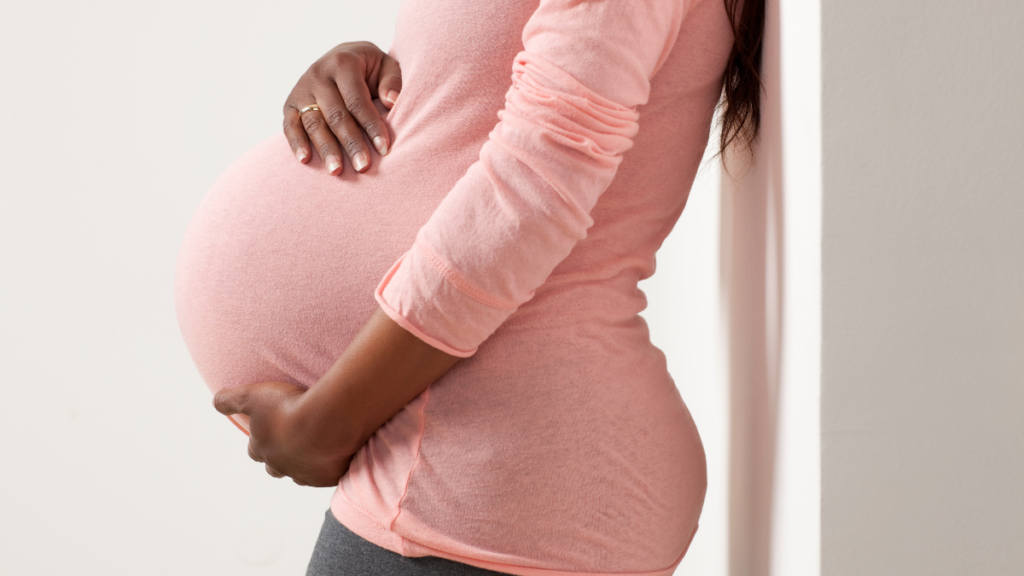
At twenty-eight weeks pregnant, you’ve now reached the end of your second trimester. You might be feeling the physical toll of pregnancy. You may have the urge to start ‘nesting’ by organizing your home from top to bottom but it is best to rest and relax.
Read on to find out more about you and your baby’s development at twenty-eight weeks.
Your baby is now at least 37.6cm long and weighs around 1kg, which is about the same size as an eggplant.
With only 12 weeks left your baby will be getting into position for birth by lowering their head. As the weeks progress you might begin to feel more uncomfortable. However, this discomfort should come and go as your baby sleeps and wakes.
Your baby has grown delicate eyelashes allowing them to blink easier and their eyes can now produce tears. They will also begin having REM (rapid eye movement) which suggests they are dreaming.
As the third trimester begins it brings more tiredness as your sleep and comfort is compromised by various pregnancy symptoms.
As your baby prepares for birth, their head might rest on the sciatic nerve in your lower spine. If this happens you may experience a sharp tingling and numbness which spreads from your buttocks down your legs. This is Sciatica, which can come in phases as your baby moves. By doing some basic stretches and applying a heat pad you can ease the discomfort.
You may find that your feet and face are becoming puffy. This is caused by water retention and is often worse in summer due to the heat. If swelling continues seek advice from your midwife or doctor as you could be suffering from pre-eclampsia. This means that despite feeling well your blood pressure could become dangerously high.
Most symptoms in the third trimester are solved by resting and raising your feet to allow your body to relax. But it is important not to ignore persistent symptoms.
A sharp tingling and numbness which spreads from your buttocks down your legs. This is often caused by your baby moving around in your womb and resting their head on your sciatic nerve.
Pregnancy hormones may cause your gums to swell and become inflamed. This means your mouth is vulnerable to bacteria. When brushing your teeth ensure you thoroughly clean your teeth, gums and tongue to minimize bacteria and risk of infection. You could also start flossing and using a mouthwash.
As your bump grows your uterus will be putting additional pressure on your digestive system and rectum. This can result in you feeling bloated and means you produce more gas. To combat this, try to eat smaller meals throughout the day to not overload your body.
Some women find that faintness from the first trimester returns. This is due to the larger bump compressing blood vessels, which reduces blood flow around the body which causes dizziness. Pregnancy hormones also change the balance of sugar and composition of your blood. Drink plenty of water throughout the day to help keep blood circulating. This also prevents dehydration and your blood sugar levels dropping.
Increased blood flow around the body can stimulate the production of mucous in your sinuses. This causes them to swell and can mean that your nasal passages become partially block resulting in a stuffy nose. This can also cause you to snore more at night. You may experience more frequent nosebleeds too.
At your 28-week antenatal appointment your midwife or doctor should give you a blood test to screen for anemia and the levels of antibodies in your blood. If your iron levels are low, you will be advised to eat foods high in iron such as green vegetables chicken, and nuts. You may also be prescribed iron supplement tablets.
Your belly is likely to be measured at your appointment to check your baby’s growth. From this measurement your doctor or midwife can check that your baby is preparing for birth in the correct position.
For more information on development and milestones at every stage of your pregnancy, visit our pregnancy week by week guide.

© 2023 All rights reserved Baby & Toddler - part of parent promotions